An interesting article on watering
Kippy
8 years ago
Featured Answer
Sort by:Oldest
Comments (33)
Rosefolly
8 years agohiclover
8 years agoRelated Discussions
Interesting article on bananas
Comments (9)I asked a specialist on the use of Banana's for Constipation. He said that Banana's consumed with other foods, does help the body restore regular bowel movements, but too many banana's( because they are high in fiber) can do the opposite.If you read the caption that is exactly what it says. Diana55...See MoreInteresting Reading: Backyard Frost Protection Article by David S
Comments (1)My fig tree is in 4th year and growing well. This year it went from 4 feet to 8 feet and produced many figs in late Oct. I have covered it in past years. Should I do the same each year? If so what can I use to cover such a large plant? It is in the south east corner of my home in a boxed out alcove, protected on 2 sides, with two 3' other plants in front of it. What do you think. Thank you....See MoreInteresting article from NBC news - Low energy housing
Comments (41)Lol Marshall. This from The Times (London) is another example of benefits of govm't intervention. Perhaps the yuppie set will be required to install multiple solar panels for their multiple water heaters. November 09, 2004 Spain makes solar panels mandatory in new buildings By David Sharrock SPAIN wants to take advantage of its sunshine by making solar panels compulsory in new and renovated buildings  to save fuel costs and to improve the environment. Jose Montilla, the Industry Minister, has announced that from next year, anyone who intends to build a home will be obliged to include solar panels in their plans, with the aim of turning Spain from a straggler to a European leader in the use of renewable energy. With the price of oil rising above $50 a barrel (£27), solar energy could produce savings of at least Â80 (£50) a year on fuel to heat domestic water supplies per household, and reduce greenhouse gases, the Government said. But critics of the GovernmentÂs plans say that the installation of solar panels would increase construction costs by between Â1,100 and Â1,400 per dwelling. Property prices have doubled since 1999 as part of a housing boom in Spain which shows no signs of cooling. The new construction regulation will affect more than half a million new houses a year, if the current pace of construction is maintained. The Socialist Government, led by José Luis RodrÃguez Zapatero, the Prime Minister, is seeking a tenfold increase in the area of solar panels in use in Spain by the year 2010, from the present total of 581,000 sq metres. Spain lags far behind Germany, EuropeÂs current solar energy leader, where 5.4 million sq metres of solar panels are currently in use. But in spite of its low domestic usage, Spain is one of the worldÂs biggest manufacturers of solar panels. According to official estimates, installation of solar panels in 3.5 million dwellings built in the past five years in Spain would have yielded a fuel cost saving of Â245 million. Señor Montilla promised subsidies to encourage further take\-up of solar panels and to ease the financial pain of the new measure, but he did not give further details. A single two\-metre solar panel on the roof of a home can cut its water\-heating bills by up to 70 per cent a year, according to government estimates. Three years ago Seville, the Andalusian capital, introduced the same measure which the Government now intends to adopt nationwide....See MoreInteresting Article re: Refinishing
Comments (21)When I was in Portland I talked to a well known Atelier named Schubach. He graduated from Cremona, then worked in Mirecourt, then in several other German and French cities. We were talking about methods of making violins and he said: If you got 100 men to make you a violin, all the violins would be built differently and each man would say his way was the correct way. I think this also applies here, to repair work. There are many ways to repair white marks on furniture. I think Teri Masaschi has a good system in her book Foolproof Wood Finishing. First she dampens a rag with alcohol and lightly passes it over the spot. If this doesn't happen quickly, go to the next step. You can rub out the spot with 3M medium density rubbing compound. If the sheen is different, then use oil and rotten stone. You may have to rub out the whole table top. If you rub through the finish to bare wood, you will have to apply a new finish and maybe a new color. Teri,s book is a good one and would be a good investment. As for Casey telling me "stfu" I have to consider that we are on the internet. As for terpentine and oil, this is rather a benign substance and in my opinion, would do no harm, seeing terpentine is made from tree sap. One could buy the type that the smell is reduced. I believe this would be a good place to start. My most important advice would be, buy the book....See Moreodinthor
8 years agojerijen
8 years agoUser
8 years agonikthegreek
8 years agolast modified: 8 years agonikthegreek
8 years agoRosefolly
8 years agolast modified: 8 years agostillanntn6b
8 years agoLavender Lass
8 years agolast modified: 8 years agonikthegreek
8 years agoKippy
8 years agoodinthor
8 years agoLavender Lass
8 years agolast modified: 8 years agoodinthor
8 years agolast modified: 8 years agosubk3
8 years agoRosefolly
8 years agonikthegreek
8 years agowaterbug_guy
8 years agoKippy
8 years agoingrid_vc so. CA zone 9
8 years agomariannese
8 years agoodinthor
8 years agohoovb zone 9 sunset 23
8 years agocatspa_NoCA_Z9_Sunset14
8 years agolast modified: 8 years agoodinthor
8 years agoUser
8 years agoKippy
8 years agocatspa_NoCA_Z9_Sunset14
8 years agolast modified: 8 years agoUser
8 years agocatspa_NoCA_Z9_Sunset14
8 years agolast modified: 8 years agohiclover
8 years ago
Related Stories
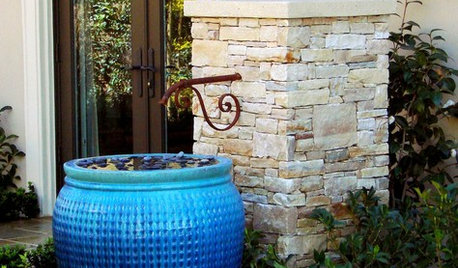
GARDENING AND LANDSCAPINGFall for a Water-Wise Fountain
No need to sacrifice beauty in the interest of water conservation — these smart fountain designs let you have both
Full Story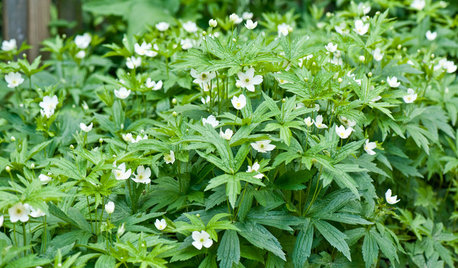
GARDENING GUIDESGreat Design Plant: Anemone Canadensis Adds Pizzazz to Water’s Edges
Plant Canadian anemone along pond, lake or stream edges for a splash of white flowers in late spring
Full Story
MOST POPULARThe Top 10 Houzz Articles of 2014
Get practical advice on kitchens, bathrooms, decorating, storage and more with the most viewed stories of the year
Full Story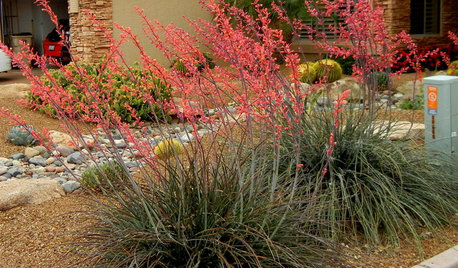
GARDENING GUIDES10 Cold-Hardy Succulents for Cool-Season Interest
These attractive plants shrug off colder temperatures, and many can be brought inside in containers in extra-chilly climates
Full Story
REMODELING GUIDESInteresting Industrial Materials: Cor-Ten Steel
Use the Rust-Rich Metal for a Variety of Exterior Applications
Full Story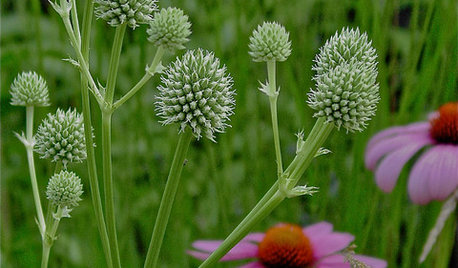
GARDENING GUIDESGreat Native Plant: Rattlesnake Master for Unique Interest
Serpents actually don’t give a hoot about this prairie wildflower, but insects do — and the foliage is a big draw too
Full Story
GARDENING GUIDESGreat Design Plant: Lindera Benzoin Offers 3-Season Interest
Support wildlife and enjoy the aromatic leaves of this U.S. native also known as spicebush, Benjamin bush and spicewood
Full Story
GARDENING GUIDESGreat Design Plant: Try California Wild Grape for Interest All Year
Sure, it’s stunning in fall. But the spring buds, summer grapes and gnarled winter vines are gorgeous too
Full Story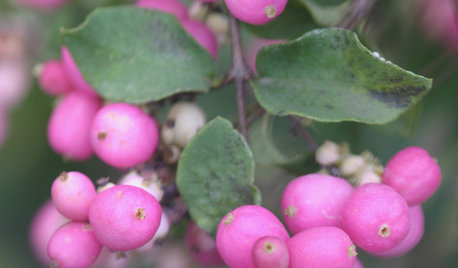
LANDSCAPE DESIGN5 Berry-licious Shrubs to Plant Now for Winter Interest
Showy color during snow season? You bet. These shrubs will wake up a garden with colorful berries when other plants are asleep
Full Story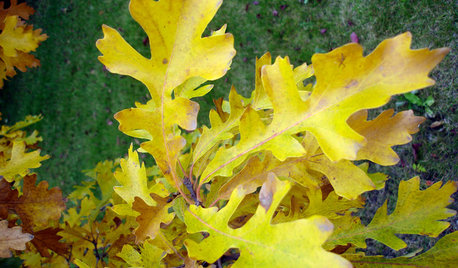
GARDENING GUIDESCelebrate Eastern Oaks for Wildlife, Longevity and Seasonal Interest
There might not be a more important tree to have in your eastern U.S. landscape — if you can fit one in
Full Story






hiclover